#my favorite books
Text
Harry Potter has a lot of hype of being the best magic young adult book out there. And while it is good, there are better ones. Also, JKR is trash. So.
Tamora Pierce is an amazing author. I still read her books as an adult, and I love them. Her books feature strong female characters, interesting and nuanced side characters, well-written antagonists, queer and poc side and main characters, and wonderful world building.
The ones more similar to Harry Potter are the lesser-known Circle of Magic series. First book is Sandry's Book. This series revolves around four children who discover they have magic that revolves around mundane/natural things: weaving, plants, smithery and weather. They all find themselves in the same house in Winding Circle Temple, where they find teachers and learn to control their magic, while dealing with various problems.
The adults are responsible, good teachers. Two (maybe three) of the four kids are poc. Three out of four teachers are poc and I'm pretty sure all of them are queer. The setting is not European, it has a Mediterranean/Turkey vibe.
Please read these books. Give them to your children, instead of Harry Potter. You won't regret it.
#tamora pierce#circle of magic#my favorite books#book reccs#ya books#childrens books#sandrilene fa toren#briar moss#trisana chandler#daja kisubo
410 notes
·
View notes
Text
The hellsite has turned into a massive vampiric book club overnight proving itself once again the effortlessly superior form of social media, I’ve never been prouder in my entire life and that’s the paprika
#listen! the children of the night#what music they make#dracula daily#i’m flying#dracula#my favorite books#books#lit#text#history#one and one thousand stories lis told
2K notes
·
View notes
Text
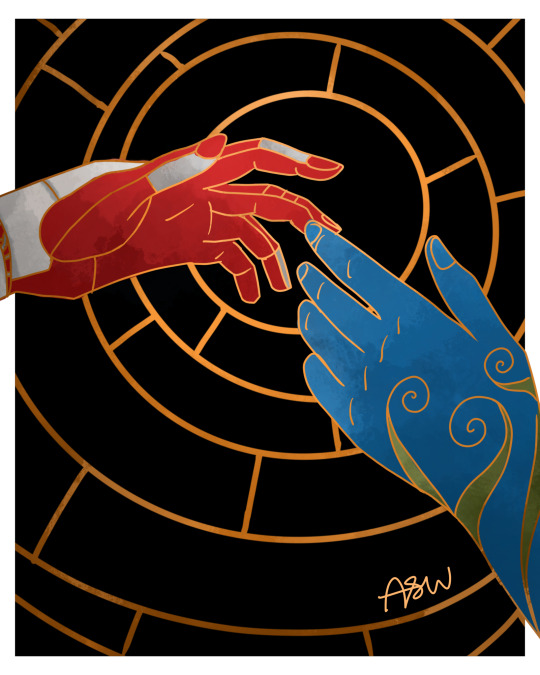
“I Am Your Echo”
(This Is How You Lose The Time War by Amal El-Mohtar and Max Gladstone)
#this is how you lose the time war#this is how you lose the time war fanart#fanart#time war#time war fanart#tihylttw#tihylttw fanart#sci fi books#time travel books#art#book fanart#queer books#sapphic books#sapphic#amal el mohtar#max gladstone#red and blue time war#fanartist#my favorite books#books that sent me into shock#book reccomendation
822 notes
·
View notes
Text
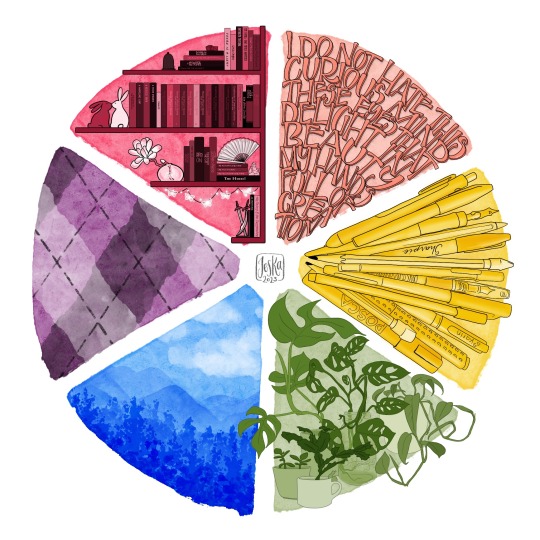

This last one is a pun 😏
#handlettering#my art#my poetry#pens#books#argyle#watercolor ish#plants#my favorite books#color wheel challenge#can even you read the titles??#pixel sized handlettering lol
52 notes
·
View notes
Text
"After supper we went up-stairs and smoked and read in bed to keep warm. Once in the night I woke and heard the wind blowing. It felt good to be warm in bed."
-The Sun Also Rises
Ernest Hemingway
144 notes
·
View notes
Text
Some times ago Neil Gaiman posted on his Tumblr blog about a project he had of, if I recall correctly, a movie adaptation of “Journey to the West”. One of the reasons he gave as to why he gave up on the project was that he realized that this work didn’t need to be retold by an European - I do not have the exact quote, I am just saying things out of memory. This post, and the topic of “Should non-Chinese people make fictional works based on Journey to the West?” made me think back to a book that would have made me answer “Yes, non-Chinese people can retell Journey to the West”. And this book would have made me answer that - if I had been asked - because it is such a beautiful and funny book. I even hesitated to share about it here because this book is truly one of my little treasures. I read it when I was a pre-teen and it marked me deeply and if I were ever to lost it I’d buy it again because I couldn’t imagine having a library and not having this book with me. And it isn’t just teenage nostalgia speaking because, re-reading it as an adult, I still find new entertainments and fascinating meanings and implications that I completely missed as a young kid not knowing much.
I had a bad literature school-teacher at the time and when she heard about me reading it, she answered that it wasn’t good for young minds to read these kind of works because they “mixed the genres” and blurred the lines of the categories of literature - she much preferred that kids would have much more categorized works that clearly and easily fit into one genre or the other. That’s the kind of bad literature teacher you’ll probably all recognize somehow, and this already places this book as one of the things these people do not like. But to take this book merely to spite those that wrongly understand literature would be a shame, because this book deserves to be loved on its own for the shere amount of work, poetry and love that its own author put into it.
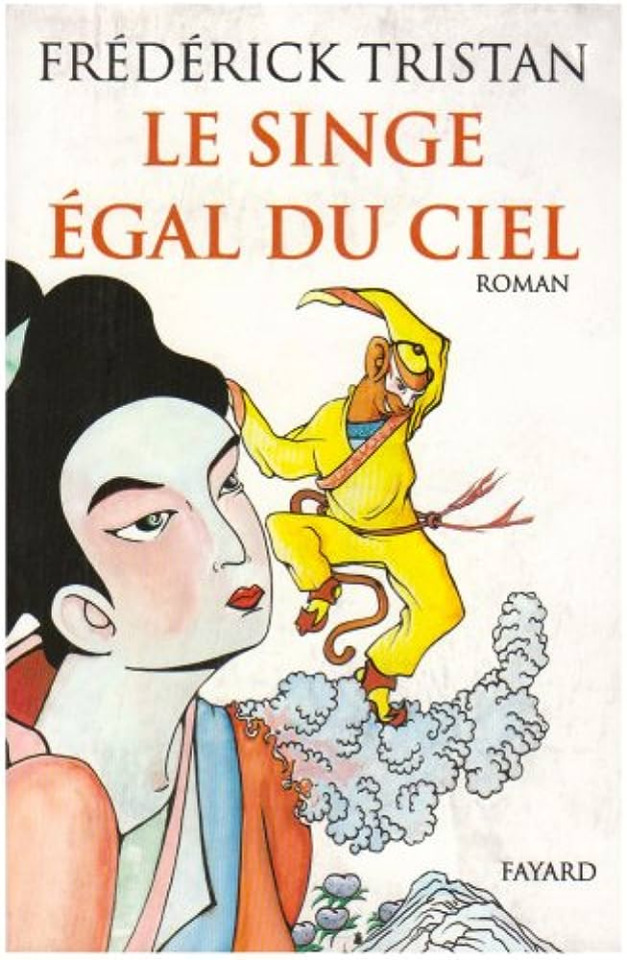
This book is probably the greatest French reimagination of “Journey to the West” I can think of - it is “Le Singe Egal du Ciel”, “The Monkey Equal to the Sky”, by Frédérick Tristan, originally published in 1972, but still printed to this day. And before the Journey to the West purist start attacking me like rabid dogs, I insist on the term “reimagining”. It isn’t an adaptation of the work, and it is not a question of being a faithful translation of the original epic. It reimagines, re-arranges, re-creates the Journey to the West plot and characters into a story that is, on its structure and foundations, identical, and yet couldn’t be more different than it. And it is a good thing, because it is the power and strength of this book.
I heard that Tristan’s books were translated in English - which doesn’t surprise me given he is one of the great French authors of the late 20th century - but since I do not know if this specific book was translated, and under which title, I’ll use the French title translated into English, The Monkey Equal to the Sky. What is “The Monkey Equal to the Sky”? It is, as I said, Journey to the West retold, but condensed, trimmed down and cut short to fit into one nice fantasy novel of forty-two chapters. Some of you hearing that might feel some sort of self-righteous nausea, saying “If they cut down anything from the original plotline, it is not worth it, better read the full original”. But again this would miss the point of this wonderful book: to someone with bare knowledge or no knowledge of the original epic, it is a great introduction and first discovery, by having a shortened story centered around the key characters and events, while also being different enough so that when said nocive in ancient literature gets to read the original epic, they’ll have an entirely new world to discover. But to the other side, to those who are very familiar with Journey to the West, it will be a fun entertainment and deforming mirror, as Frédérick Tristan truly plays with the original text, creating a game of correspondances and analogies, uniting several different characters into one, inter-connecting strongly the “before” and “after” parts surrounding Sun Wukong’s imprisonment under the mountain, and ultimately making it even more obvious than the greatest monkey of them all is the main character and protagonist of the tale.
Because this is what Tristan wanted to do before all: tell the story of Wukong, all about Wukong, as the protagonist, hero, antagonist and villain of his own tale all at once. The story might be changed, but trust me, the character of Wukong isn’t in the least, because this book is filled with the spirit of Journey to the West and the Monkey King, if not with the detail. I will tell you already the very bold move Tristan did, to really make this story even more about Wukong than it was originally: in Tristan’s novel, there is no Tripitaka. The monk that is charged with fetching the sacred texts in India and who is surrounded by three disciples is rather... Sun Wukong himself, or rather his fictional equivalent here, The Monkey-Equal-to-the-Sky (also undergoing his religious name, Aware-of-the-Vacuity, Conscient-de-la-Vacuité). It might seem like an insane thing to do, but it WORKS. Of course, those that will be looking for some of the readings of the epic - such as a dissection, exploration and study of the human soul, psyche and personality between the various impulses, emotions and vices, throughout the metaphorical characters of Tripitaka and his disciples - will be disappointed because Tristan’s novel is not a psychological one. But instead, what you have is a careful balance between existential horror and a cosmic farce - some sort of impossible mix of Lovecraft’s cosmic dread mixed with the world-questioning humor of Good Omens, and even then the comparison is a very poor one missing out on the very peculiar, unique and poetic feel of this novel. It is about this monkey, who is all powerful and yet constantly bound and chained by something, it is this monkey that clearly is the voice of reason of the world and yet acts like a madman, this monkey that is a living paradox - and the story is about how his very existence throws an ordered world into chaos and forces it to be rebuilt and undergo a full renewal. It is the story of how, by merely existing, this character that does both heroic deed and monstrous actions, challenges the very notions of supreme powers, of existence, and of reality. It is a buffoonic Shakespearian comedy where the trickster-monkey mocks, beats up and scams everyone and everything, it is an apocalyptic work where we see what happens when something unexpected and that should not exist destroys the very foundations of the world, and it is a philosophical and religious investigation as the monkey searches for, studies, explores and quests for the powers, the meanings, the morals and the truths behind religion, absolute purity, true virtue, and the world.
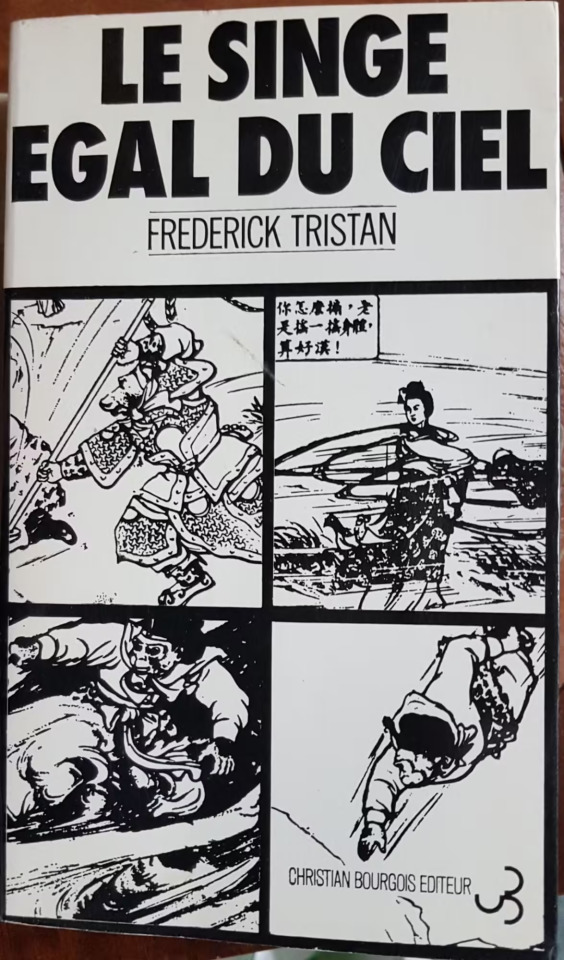
It sounds like a LOT for a novel that is actually a shortened and condensed version of Journey to the West, but that’s the secret: by mixing various characters into new ones, by changing slightly the focus of the story, by giving new angles to some episodes and scenes, Tristan opens up a whole new space and vast expanses of literary terrain on which he adds tons of fascinating content and fresh details to retell the story with new meanings. Frédérick Tristan himself put a Warning in his text as a foreword, explaining the various inspirations of his work so that people did not mistook his novel for a mere adaptation of Journey to the West: because beyond the great Chinese novel we all know, he also took elements from other texts that also told of the legend of Sun Wukong (Journey to the West merely being the most famous and most complete of the various tellings of this ancestral legends), as well as various stylistic ingredients and poetic tones from the various historical translations of the work in Europe - such as the first French and British translations. In the same foreword, Tristan does spell out his intentions of completely reversing the original meaning of the novel by making Sun Wukong take the place of Tripitaka during the pilgrimage to India.
And even beyond his extensive researches surrounding the figure of Sun Wukong himself, Tristan also slid in his novel various elements from both European and Asian traditions. European because he places here and there subtle references to European fairytale structures or old European myths (though I have to say they were subtle enough that I didn’t notice them until it was pointed out to me). As for the Asian inspiration, this allows me to break down another of the arguments people who do not know about about Frédérick Tristan might raise: what does an old white French dude knows about China anyway? As it turns out, a lot, and that’s not just his obsession with the Sun Wukong legend. Frédérick Tristan lived from the late sixties to the mid-eighties half of the time in Eastern and South-East Asia. He was at the time not a yet recognized author, but a mere specalist of the textile industry, forced by his father to inherit the textile business of the family against his son’s poetic and literary aspirations. His positions led him to work on official business matters in China, Cambodia, Vietnam and Laos - and during his trips, visits and stays there he became enamored and fascinating with their history and culture. China most of all became his main dream and subject of study: “The Monkey Equal to the Sky” is but the first of a series of six “Chinese novels” each one taking inspirations from various elements of Ancient China. Sometimes he retells and weaves stories based on Chinese myths, like with “The Monkey Equal to the Sky”, whereas other times he rather explores various religious and philosophical aspects of China through the means of fiction. In one he recreates the koan genre in the rules of the art, in another he proposes a fictional exploration of the roots and teachings of taoism, and in yet another novel he pays homage to the works and style of Pu Songling.
And if he knows so much about China, it isn’t just because he loves to write stories about it - he also published serious, profesionnal, recognized works about Ancient China. His most famous work being “Houng, les sociétés secrètes chinoises”, an essay about secret societies in China centered around the rites and practices of the Tiandihui. And his historical and cultural knowledge of Ancient China, its philosophies, its literature and its secret societies helped him recreate another semi-historical semi-mythical China for “Journey to the West” or rather an anti-Journey-to-the-West, to be played in.
I could speak much more of Frédérick Tristan, of his work, and of the beauty of this novel, but I will merely say that, if you enjoyed Journey Through the West, and enjoyed its characters, you will definitively find Tristan’s novel very entertaining. And if you ever have the chance to read it in French, do so, because - again - I do not know if an English translation is available, and if it is I cannot attest of its quality since I never read it, but I hope the brilliantness and fun of the text will be carried on throughout the language barrier.
#journey through the west#sun wukong#frédérick tristan#the monkey equal to the sky#novel#china#ancient china#french literature#my favorite books#books to be read at least once in your life#french novel
37 notes
·
View notes
Text


🌿 Books & Plants
#books#my books#bookshelf#bookshelfie#air plant#air plants#plants and books#books and plants#nature book#nature books#book aesthetics#light academia#academia aesthetic#my bookshelf#reading#my favorite books#reading aesthetic#book aesthetic#cozy reads#readers#reading books#all my books
106 notes
·
View notes
Text
Let's talk about opening lines.
The first sentence of a book is a hook to draw readers in. I don't know how many times I've read the first sentence of a book and immediately known I was going to find a new favorite.
I picked five of my favorite opening lines from five of my favorite books. Transcripts will be down in the comments, but the books I've included are:
1. Vicious by V.E. Schwab
2. The Whispering Dark by Kelly Andrew
3. The Undertaking of Hart and Mercy by Megan Bannen
4. The Scorpio Races by Maggie Stiefvater
5. The Raven Boys by Maggie Stiefvater
Each of these books holds a special place in my heart. If you haven't read them, I hope these opening lines help you pick them up.
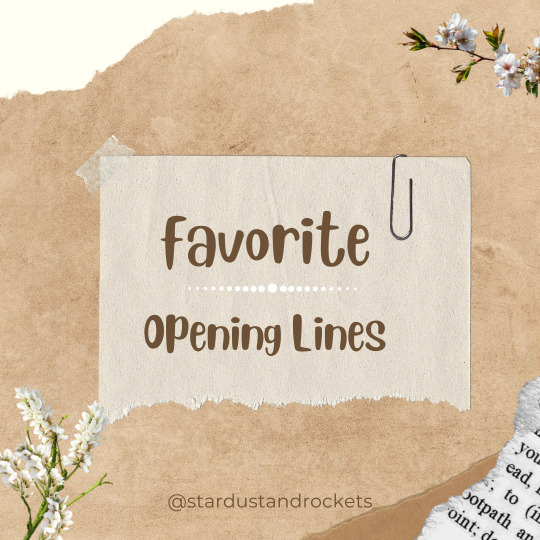
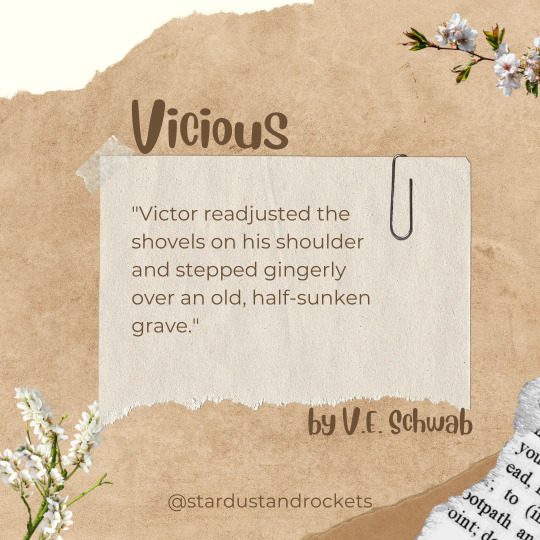
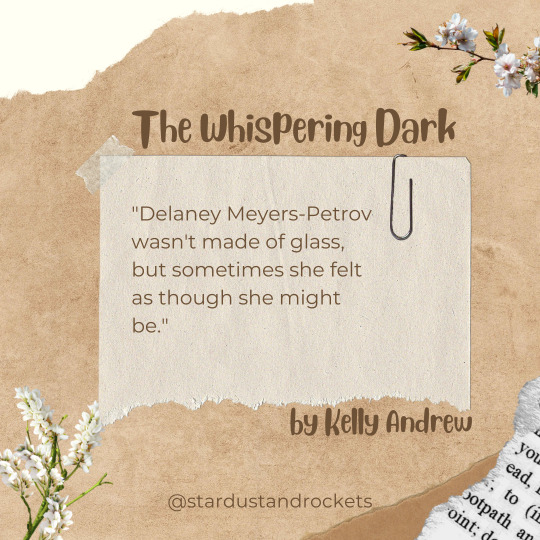


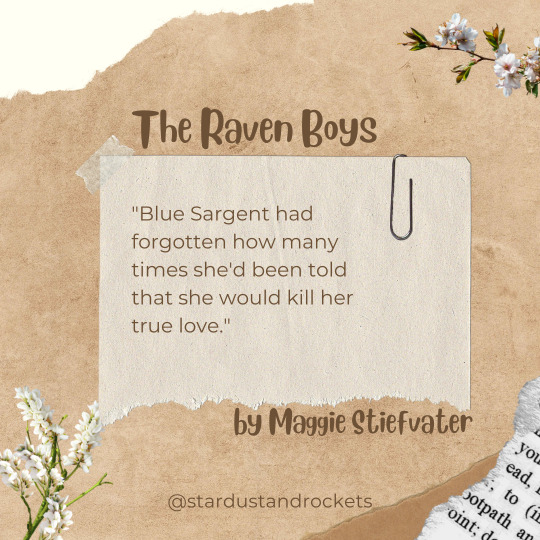
#vicious#ve shwab#victor vale#the whispering dark#kelly andrew#the undertaking of heart and mercy#megan bannen#the scorpio races#the raven boys#the raven cycle#maggie stiefvater#opening lines#first lines#my favorite books#books i've read#stardust book recs#stardustandrockets#july 3
14 notes
·
View notes
Photo

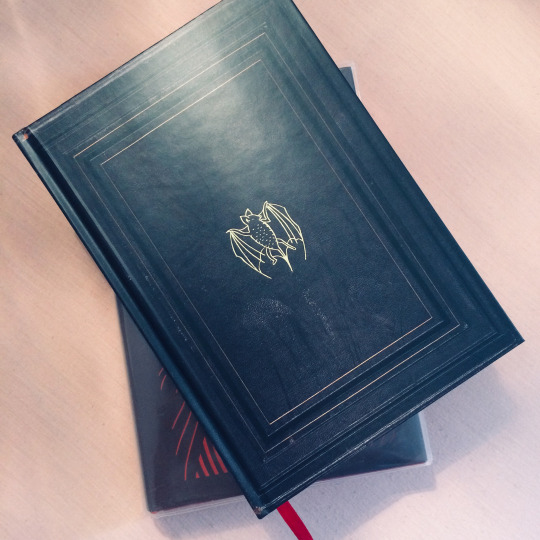
I don’t know how or when this happened, but here I was, having just logged in and ready to post some art, when suddenly everyone’s talking about Dracula JUST when I was about to finish my annual re-reading of my favorite travel guide 😆
Odd, very odd. Dr. Van Helsing should probably have a reasonable explanation for this.
Anyway, I’m so happy to know people still care about classic things! Well done, Tumblr! 🧛🏻♂️
Happy Saturday! 🦇
#dracula#dracula daily#i love you tumblr#classic things never go out of style#now let me get back to my book#my favorite books#some dracula art coming soon#bram stoker
135 notes
·
View notes
Text


This is one of my favorite anthologies of all time. It is everything I loved about Hell Followed with Us but in short fiction and poetry. My gay transgender religiously traumatized ass felt so empowered by this collection.
I also want to say how important and wonderful it is for each chapter to include content warnings. I think this is an accessibility feature that needs to become the standard.
#book recommendations#queer lit#lgbtqia+ books#short story collection#religious trauma#angels#monsters#my favorite things#my favorite books
5 notes
·
View notes
Text
“You know, one loves the sunset, when one is so sad.”
Antoine de Saint-Exupéry, The Little Prince
#bookworm#books#book quotes#booknerd#reading#booklover#book#bookaddict#booklr#quote#antoine de saint exupéry#the little prince#my favorite books
3 notes
·
View notes
Text
Another reason why the the Circle of Magic is so so good: the teachers and the school setting are done perfectly!
There is none of that Harry Potter bullshit where the teachers and adult figures were neglectful, incompetent or abusive. The teachers in Circle of Magic are amazing. They all have different teaching styles, but they dedicate themselves to their students and do a wonderful job. They make mistakes, but realistic ones and then they fix them.
Not only are they great teachers, but the Winding Circle Temple isn't just a school, it's a home. Hogwarts was a school, and the students lived there, but it never seemed to be a good home. There are very few adults, all intimidating and not very personal. There is unchecked bullying and very little free time. It's just never ending school with some holidays thrown in.
The Winding Circle Temple, on the other hand, feels like a home. First, a temple is such a neat setting for a children's book. They actually talk about midnight service, religious figures and holidays, and philosophy. It's very neat.
The kids have plenty of lessons, but they also have free time, and the teachers are also good caretakers. Lark teaches the kids handstands and tumbling. Frostpine told them stories. Rosethorn taught them how to make sun lotion. Gorse gives them treats whenever they drop by. Lark and Rosethorn take the kids to markets and festivals. Throughout it all, the adults are responsible, teach the kids all sorts of life lessons and skills, and are really amazing adult characters.
This is how a school type book should be written.
#tamora pierce#circle of magic#my favorite books#book reccs#magic books#ya books#teen books#good books#sandrilene fa toren#briar moss#daja kisubo#trisana chandler#rosethorn#lark#frostpine#nico goldeye
429 notes
·
View notes
Note
Hi Gina, what are the last few books that you read that you really like? Or some of your favoritos books of all time? Happy Sunday!
Hi love. Here’s a post I made a while ago with some of my favorite books.
About a year ago I read The Scottish Boy (Alex de Campi) and loved it.
For the last 8 or so years all I’ve read is fic. I’m really glad I’m getting back into the swing of reading traditionally published books again. Currently on my nightstand are:
Circe (Madeline Miller — just finished it and loved it)
Bird by Bird (Anne Lamott)
The House in the Cerulean Sea (TJ Klune)
Less (Andrew Sean Greer)
Norse Mythology (Neil Gaiman)
Fourth Wing (Rebecca Yarros — blame BookTok for that one)
The Hobbit (JRR Tolkien — because I’m reading it with my son)
I have boxes and boxes of books in my garage and I hate that I have nowhere to display them.
8 notes
·
View notes
Text

“This is how we win, Red.”
(This Is How You Lose The Time War by Amal El-Mohtar and Max Gladstone)
#this is how you lose the time war fanart#this is how you lose the time war#this is how you lose the time war broke me#tihylttw fanart#tihylttw#sci fi books#sapphic books#sapphic#queer books#queer art#queer representation#time traveling lesbians#book fanart#books that sent me into shock#my favorite books#fanart#time war fanart#fanartist#red and blue gays#but literally red and blue
169 notes
·
View notes
Text
The Brothers Karamazov <3
i really feel like yall dont understand how deeply i love the book: the brother karamozov... like not for the religion sm as the philosophy... like just, all the heart and soul put into the words. acsvhjdmnsfgmbdfsmw. i read a paragraph, a page, and i often times will be struck to write some of the most amazing bits for my novel to work with more, later. Idk, just love what it’s doing and the pure life energy and hope to encapsulate some of that in my work.
really wished more queers that weren't even religious but just deep thinkers liked this book so i could fanboy with them tbh. sooo.. if you like long reads check it out and hit me up after pls! or if you like it feel free to talk to me. even if you are religious, i’m totally open to talking to anyone who isn’t pushy or rude. It’s actually helped me a lot with my religious trauma being that i relate most with Alyosha and then some blanketed bits Ivan works in.
#the brothers karamazov#my beloved#books#my fav book#my favorite books#book recommendations#lgbtqia+#lgbt#gay#queer
8 notes
·
View notes
Text
"War must be, while we defend our lives against a destroyer who would devour all; but I do not love the bright sword for its sharpness, nor the arrow for its swiftness, nor the warrior for his glory. I love only that which they defend.” -Faramir
LoTR- The Two Towers
J.R.R. Tolkien
19 notes
·
View notes